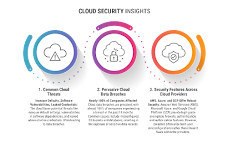Unlocking the Power of Google Cloud Compute Engine: Gcp DevOps
Subtitle: Navigating
the Landscape of Compute Resources for Optimal Performance
Introduction: In the ever-evolving landscape of
cloud computing, Google Cloud Compute Engine stands out as a powerhouse,
offering scalable and flexible virtual machine (VM) solutions. This article
aims to provide a comprehensive understanding of Google Cloud Compute Engine,
shedding light on its key features and how businesses can leverage its
capabilities for optimal performance.
- GCP
DevOps Training in Hyderabad
I. What is Google Cloud Compute Engine? Google Cloud Compute Engine is a Infrastructure as a Service (IaaS) offering that enables users to run virtual machines on Google's global infrastructure. With the ability to scale resources on-demand, Compute Engine provides a robust and reliable platform for hosting applications, websites, and services.
II. Key Features of
Compute Engine: a.
Scalability and Flexibility: Compute Engine allows users to scale their virtual
machine instances up or down based on workload demands. This flexibility
ensures that businesses can efficiently manage resources and only pay for what
they use.
b. Customization: One of the strengths of Compute
Engine lies in its customization options. Users can choose from a variety of
machine types, customize the amount of virtual CPUs, memory, and storage to
meet specific application requirements.
- GCP
DevOps Online Training Institute
c. Predefined Machine
Types: For users who
prefer simplicity, Compute Engine offers predefined machine types that cater to
common computing needs. These configurations are optimized for various workloads,
making it easier for users to select an appropriate setup without diving into
intricate details.
III. Networking
Capabilities: a.
Virtual Private Cloud (VPC): Compute Engine seamlessly integrates with Google
Cloud's VPC, enabling users to create their isolated network environments. This
ensures secure communication between instances and allows for fine-grained
control over network configurations.
- GCP
DevOps Training institute in Ameerpet
b. Load Balancing: To enhance the reliability and
availability of applications, Compute Engine provides load balancing options.
Users can distribute incoming traffic across multiple instances, optimizing
performance and ensuring a smooth user experience.
b. Google Cloud Storage
Integration: For
scalable and durable object storage, Compute Engine seamlessly integrates with
Google Cloud Storage. This enables users to leverage cost-effective storage
solutions for their data.
V. Security Best
Practices: a.
Identity and Access Management (IAM): Compute Engine incorporates IAM for
managing access to resources. Users can define granular permissions, ensuring
that only authorized individuals or processes have access to sensitive data and
configurations. - GCP
DevOps Training in Ameerpet
Conclusion: Google Cloud Compute Engine
empowers businesses to harness the full potential of cloud computing with its
scalable, customizable, and secure virtual machine solutions. By understanding
its key features and incorporating best practices, organizations can optimize
their infrastructure, enhance performance, and embark on a journey of digital
transformation in the cloud.
GCP DevOps Online
Training - Visualpath provides best GCP DevOps Training classes by real-time
faculty with real time Projects. We are Providing GCP DevOps Training in
Hyderabad in Ameerpet Institute In Hyderabad, USA, UK, Canada, Dubai,
Australia. Call on
+91-9989971070.
whatsApp:https://www.whatsapp.com/catalog/919989971070
Visit : https://gcpdevopsonlinetraining.wordpress.com/2023/12/19/unlocking-the-power-of-compute-engine-gcp-devops/
Fill the Form : https://bit.ly/3TlH5BX
Visit For More Info : https://gcpdevopsonlinetraininginameerpet.blogspot.com/

.jpg)


Comments
Post a Comment